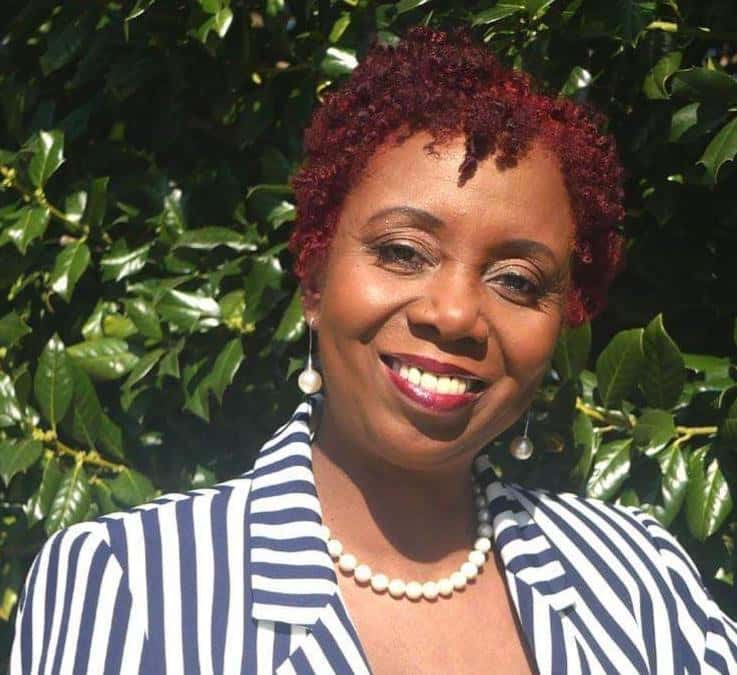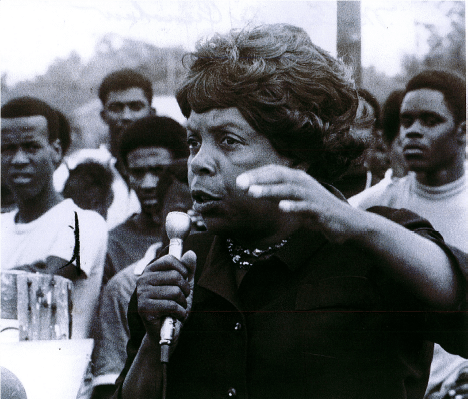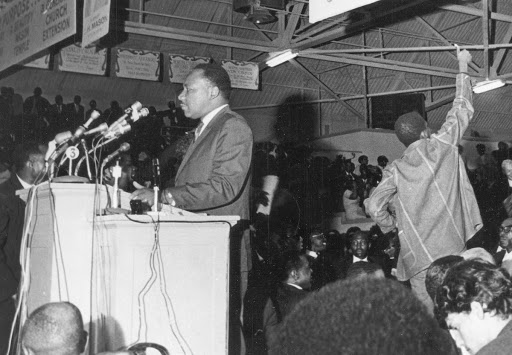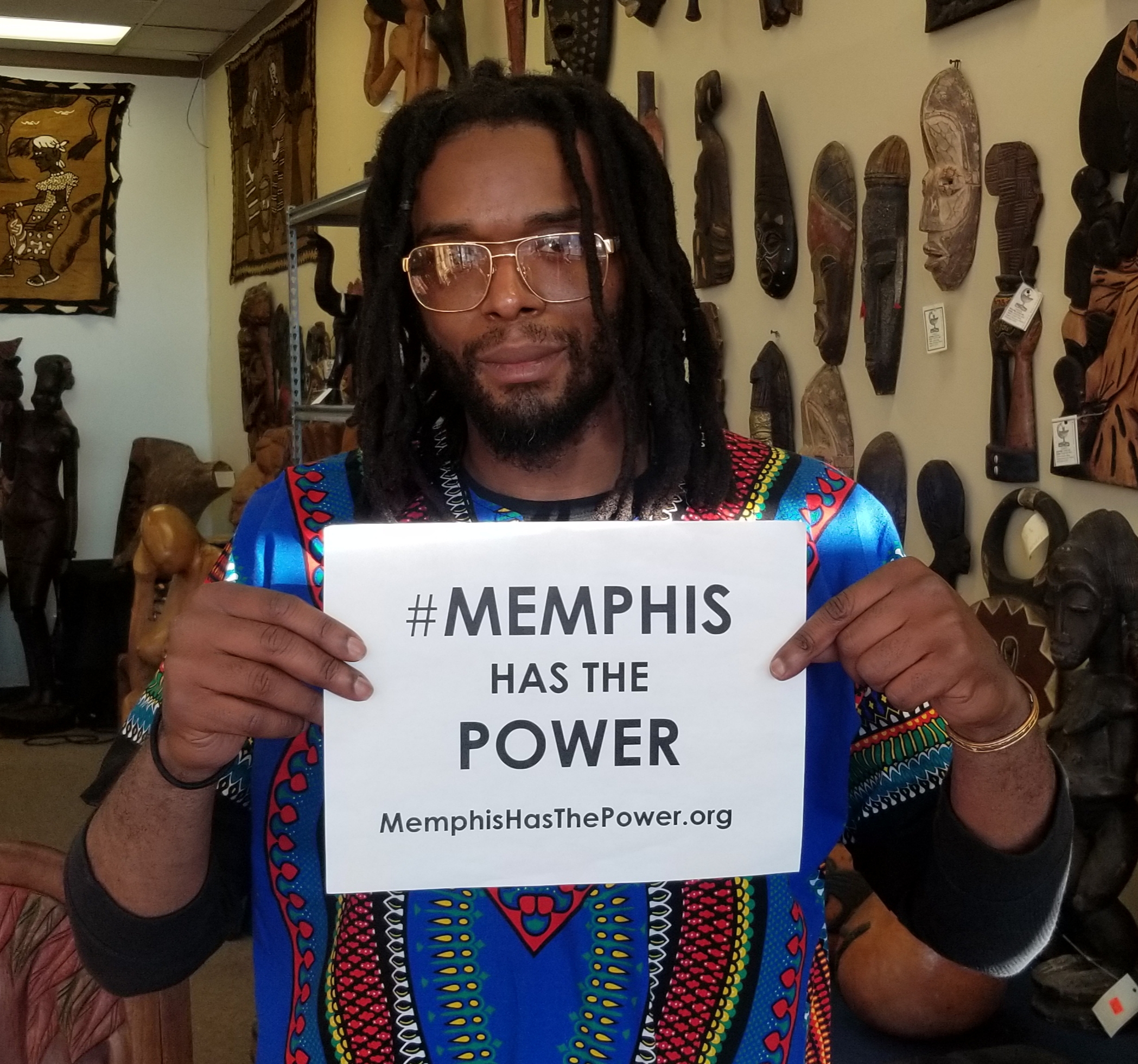
This is written by Pearl Eva Walker, Memphis resident who works on the Memphis Has the Power campaign. Read the Memphis Energy Town Hall recap.
The past month we have all understandably been preoccupied with the unprecedented pandemic spreading worldwide. These uncertain times are impacting us all in different and profound ways, and it’s important that we continue to lean on each other during this time while trying to move forward.
Look to the Past, to Help Us Move Forward, Today
It’s April now, but for a moment let’s go back to March, National Women’s History Month. This past month, I found time between the madness to celebrate by fondly remembering one of my favorites in women’s history: Cornelia Crenshaw. Ms. Crenshaw was an energy equity and justice advocate and Memphian whose protest efforts in the 1960s and 1970s led MLGW (Memphis Light Gas & Water) to allow its customers to make partial payments on their bills.

I have been following in the steps of Ms. Crenshaw as an energy equity and justice advocate for a few years now, and it has been an awesome experience that has shown me how energy is tied to so many areas of our lives, like health and transportation. After witnessing Memphis communities, especially Black and Brown, struggle with energy unaffordability, high electric bills, coal ash pollution, and lack of access to safe and affordable clean energy options like solar, I wanted to work to mobilize concerned citizens and to elevate their awareness, understanding, and conversation around the dangers of climate change and the importance of clean energy choices.
My advocacy provided me with the opportunity to be a part of Memphis’ first Energy Justice Conference, hosted by SACE (Southern Alliance for Clean Energy) in 2017. In 2018, I addressed the Tennessee Valley Authority (TVA) Board regarding a fixed fee hike in Muscle Shoals, Alabama. I also traveled to Atlanta that year for the Just Energy Summit at Morehouse College sponsored by the Partnership for Southern Equity, where a variety of different voices united to take collective action toward a more equitable and inclusive clean energy future where no one is left behind.
Well, I definitely don’t want Memphis to be left behind. My concerns and passion for helping my fellow Memphians led me to run for Memphis City Council in 2019 to help ensure Memphians have a just energy future. While on the campaign trail, I participated in the Energy Democracy Tour stop in Memphis. The event hosted by groups like Appalachian Voices, SACE, and others, provided opportunities for community members to learn more about MLGW, TVA, and how our energy system works. I was there because I care about our energy future, and as an energy advocate, it was important to me. Sadly, I was the only candidate present, and there were no elected officials in attendance either.
Now, as I watch my family, friends, neighbors, and fellow Memphians struggle and face so many uncertainties, I continue to think of iconic activists like Cornelia Crenshaw and Dr. Martin Luther King Jr., who was assassinated in Memphis on April 4, 1968, and what their visions and advice would be to help protect the most vulnerable among us in these trying times and use them as inspiration to help us move forward.
Memphis Today: Poverty and Energy Burden Plague Memphians
Today, Memphians suffer from one of the highest energy burdens in America. Energy burden is the percent of household income that a household pays in energy costs to a utility. The national average is around 3% – yet in Memphis, many families with lower incomes pay upwards of 25%, meaning Memphis has the most unaffordable energy of any major city in the nation. Many Memphians feel that their disproportionate energy burden is a result of greed and institutionalized poverty that has existed for over 50 years. This poverty impedes Memphians daily and is exacerbated by volatility such as that we are experiencing today as a result of the ongoing threat of COVID-19, which has rendered so many of us unable to work and feeling the most severe brunt of economic hardships. Those of us paying high portions of our normal monthly income in energy costs are especially vulnerable to these impacts and uncertainties, and most in need of protection, from our elected officials.
What Would Iconic Leaders Do Today?
If Dr. King and Ms. Crenshaw were here today I estimate they would be marginally impressed with the Crosstown Concourse, Downtown Redevelopment, the Incentivized Poplar Corridor, and the MRPP – Memphis River Parks Project. This would prompt me to ask them “What is your view of Memphis in 2020?”
Today, Ms. Crenshaw would likely be saddened that her former home at 603 Vance, along with the Cornelia Crenshaw Branch Library, are in the poorest zip code in Tennessee (38126). These locations are in Super District 8 (the west half of Memphis) where I am a resident via the Whitehaven area. Super District 8 is the home of some of Memphis’ most precious icons such as Graceland, Beale Street, and the STAX Museum while simultaneously being the home of the three poorest zip codes in Memphis and Shelby County, 38126, 38106, 38108, which are among the six poorest zip codes in the state of Tennessee. These zip codes are especially impacted by Memphis’ high energy burden. If Ms.Crenshaw was still alive to continue her work, I believe she would be working to affect better energy policy for Memphis, and especially for those living in these low-income zip codes, by demanding clean and affordable options.
Today, Dr. Martin Luther King, Jr. would probably want to know why so many of us sold Grandmama’s house, and question the gentrification around Mason Temple, the site where he made his last and famous Mountaintop speech.
“But it really doesn’t matter with me now, because I’ve been to the mountaintop … I’ve seen the Promised Land,” Dr. Martin Luther King Jr.

These great icons would likely want to know the status of the “least” of Memphis’ residents, questioning why Memphis has had such a high poverty rate for over half a century which has resulted in the city’s high energy burden. I believe they would want to know what we can do to protect the most vulnerable among us from burdensome, disproportionately high energy bills – and that they would press local officials to enact critical energy equity solutions.
They’re not here – – but We are, and We Can Effect Positive Changes for Memphis
Today, as a Memphian and an energy justice advocate, I am following closely as MLGW finalizes its plan to acquire energy as we move into the future. In recent months, MLGW has been examining the possibility of finding less expensive energy from a new supplier and breaking free of its current energy supplier, TVA.
Multiple studies have shown if MLGW broke free from TVA and switched to another energy provider the savings to Memphis would be hundreds of millions of dollars per year for the city of Memphis.
Herman Morris, former president of MLGW, recently said that TVA’s wholesale power costs about 7.5-8 cents/kWh while an alternate supplier of energy would charge just 4-4.5 cents/kWh. The lower rate has the potential to translate into lower bills for customers.
Dennis Lynch, Chair of the Sierra Chickasaw Group said during the Tennessee Valley Energy Democracy Tour last year that Memphis has a number of interrelated energy issues, including high ‘energy burden’ and a relatively small amount of low-cost energy sources, like solar. “Fortunately, the local utility (MLGW), community organizations, and public officials are working to address both these problems, and maybe even separate from TVA.”
The Facebook group MRYE – Memphis Raise Your Expectations recently posted the question “Should MLGW stay or breakaway from TVA?” Tom Jones of Smart City Consulting replied, “Only 19% of Tennessee Valley Authority’s energy portfolio comes from renewable energy sources. If Memphis is to be a resilient city that plans for its future, it will prioritize energy efficiency and renewable resources. I vote yes. There has already been plenty of research and TVA cannot justify its higher rates.”
If I could share these energy studies with Dr. King, I judge that he would want decisionmakers to take swift, aggressive, and vigilant action in regard to setting policy and making choices that will provide access to clean energy jobs and bring more affordable, reliable, and renewable energy to Memphis.
Memphis – The Time is Right to Do What’s Right!
My vision of King’s Promised Land doesn’t include energy burdens but instead, clean and affordable options for each of us. I believe that today, Dr. King and Ms. Crenshaw would say to the Memphis City Council, “If you remain with TVA, understand that there can be NO PEACE IN THE ‘VALLEY’ without energy equity and justice for all.”

There is a clean energy information void within Memphis communities. Memphis stakeholders have much to say, but we need to increase the dialogue and education surrounding these critical issues in more communities.
Memphians, please sign the petition urging our community leaders to do what is right for the city of Memphis and help chart an equitable and clean energy future. We deserve Peace In the Valley. Join me by demanding more from our elected officials in terms of information, and taking responsibility for educating ourselves around these topics that affect us today and tomorrow.
“The time is always right to do what is right,” Dr. Martin Luther King, Jr.